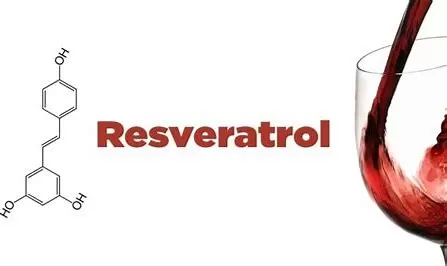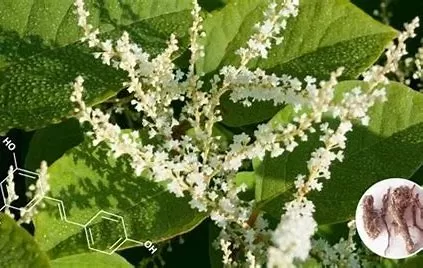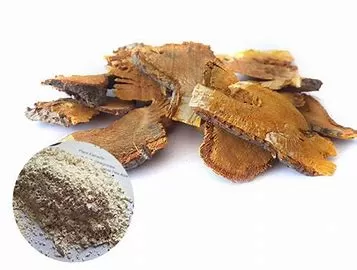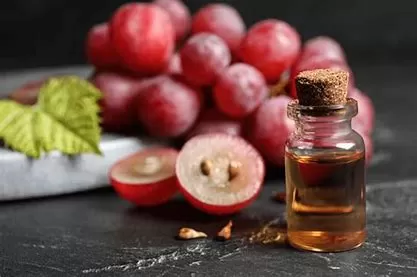- 0086-571-85302990
- sales@greenskybio.com
What fruit is highest in resveratrol?
2025-03-24
Resveratrol, a naturally occurring compound praised for its potent antioxidant properties, has become synonymous with promoting good health and longevity. Recognized for its potential in reducing inflammation, lowering blood pressure, and preventing cardiovascular diseases, resveratrol is a topic of interest not only in scientific communities but also among health-conscious individuals. While it is famously found in grapes and red wine, there exists curiosity about which fruit ranks highest in resveratrol content. Uncovering this reveals insights into dietary choices that can benefit health and wellness.
Understanding Resveratrol and Its Health Benefits
Resveratrol is classified as a polyphenol, a type of plant compound rich in antioxidants which combat oxidative stress and cellular damage caused by free radicals. It holds promise in the field of anti-aging, potentially offering benefits for heart health, brain function, and diabetic conditions. Resveratrol is also linked to cancer prevention, primarily due to its ability to inhibit tumor growth and promote apoptosis, a process of programmed cell death essential for regulating harmful cells.
The compound's association with red wine consumption underpins the so-called "French Paradox"—a term describing lower incidences of heart disease observed in French populations despite diets high in saturated fats. However, beyond wine, there are various fruits that are rich sources of resveratrol.
Top Fruits Containing Resveratrol
Though grapes are the most commonly recognized source of resveratrol, they are not the vehicle for the highest concentration found in fruit. The wonder fruit known for its abundance of resveratrol is the muscadine grape. Native to the southeastern United States, muscadine grapes hold an impressive resveratrol content within their thick skins and seeds.
Muscadine grapes differ from typical grape varieties by having a robust skin and higher concentrations of nutrients like resveratrol. Research has shown that muscadine grapes contain up to six times more resveratrol than ordinary grapes, making them a superfruit for those focusing on antioxidant intake. The unique environmental conditions in which muscadine grapes grow have endowed them with a powerful adaptation against oxidative stresses, contributing to their elevated resveratrol levels.
Other fruits such as blueberries and cranberries also contain resveratrol, albeit in modest concentrations compared to muscadine grapes. Blueberries are applauded for their comprehensive antioxidant profile, which includes resveratrol alongside anthocyanins that aid in immune function and heart health. Similarly, cranberries add to dietary antioxidant intake but do not rival the potency found in muscadine grapes.
The Role of Resveratrol in Disease Prevention and Health Promotion
Resveratrol's notable role in health improvement begins at the cellular level, where it influences signaling pathways and gene expression linked to longevity and disease resistance. Some key health benefits attributed to regular resveratrol consumption include:
1. Cardiovascular Health: Resveratrol helps improve endothelial function, reducing oxidative damage and inflammation while promoting vasodilation, which are essential for maintaining optimal heart health and blood circulation.
2. Neuroprotective Effects: Research suggests resveratrol may protect brain cells from damage and improve cognitive function, with implications for battling conditions like Alzheimer’s and Parkinson’s diseases.
3. Anti-Cancer Properties: The compound’s ability to inhibit cancer cell proliferation and induce apoptosis raises serious interest in its potential role in cancer prevention strategies.
4. Metabolic Health: Resveratrol contributes to improved insulin sensitivity, glucose regulation, and weight management for individuals facing metabolic disorders like type 2 diabetes.
Integrating Muscadine Grapes into the Diet
Given the exceptional resveratrol content found in muscadine grapes, incorporating them into one’s diet can enhance antioxidant intake. Fresh muscadine grapes can be eaten raw, or processed into juice, jelly, or wine—the latter preserving the resveratrol content, much like red wine.
For those unable to access fresh muscadine grapes, resveratrol supplements derived from these grapes provide a practical alternative. Such supplements are available in various concentrations, but it is always advisable to consult healthcare providers before starting new supplements, especially for individuals with health conditions or those already taking medication.
Considerations and Future Research
While muscadine grapes top the resveratrol chain among fruits, resveratrol is merely one component of a balanced diet. The interplay of different nutrients and polyphenols emphasizes the importance of a varied diet rich in fruits and vegetables rather than focusing on a single compound. Nonetheless, understanding sources of powerhouse nutrients like resveratrol contributes to informed dietary decisions and proactive health approaches.
Ongoing research continues to unlock the full health potential of resveratrol, examining its pharmacological effects, bioavailability, and long-term impact on health. As it stands, muscadine grapes solidify themselves as invaluable players in delivering resveratrol, prompting further exploration and use in both culinary and medical contexts.
Conclusion
Muscadine grapes emerge as the unrivaled fruit in resveratrol content, setting a standard for antioxidant-rich options in the diet. While their contribution to disease prevention and health enhancement is significant, the ultimate goal is integrating a multitude of nutrient sources from assorted fruits and vegetables for comprehensive wellness. As science progresses in understanding resveratrol’s benefits, incorporating muscadine grapes can be a promising component in embracing healthy lifestyle choices that prioritize longevity and disease resistance. Whether through fresh consumption or supplemental forms, muscadine grapes offer a tasty route to better health, backed by their cherished polyphenol content.
- ▶ Hesperidin
- ▶ citrus bioflavonoids
- ▶ plant extract
- ▶ lycopene
- ▶ Diosmin
- ▶ Grape seed extract
- ▶ Sea buckthorn Juice Powder
- ▶ Beetroot powder
- ▶ Hops Extract
- ▶ Artichoke Extract
- ▶ Reishi mushroom extract
- ▶ Astaxanthin
- ▶ Green Tea Extract
- ▶ Curcumin Extract
- ▶ Horse Chestnut Extract
- ▶ Other Problems
- ▶ Boswellia Serrata Extract
- ▶ Resveratrol Extract
- ▶ Marigold Extract
- ▶ Grape Leaf Extract
- ▶ blog3
- ▶ blog4
- ▶ blog5
-
Is resveratrol safe for kidneys?
2025-03-24
-
Is It Okay to Take Resveratrol Every Day?
2025-03-24
-
What is resveratrol used for in skin?
2025-03-24
-
What Are the Sources of Resveratrol?
2025-03-24
-
What Is Resveratrol Extract Good For?
2025-03-24
-
Licorice Root Extract Powder
2025-03-24
-
Alfalfa Meal
2025-03-24
-
Acerola Extract
2025-03-24
-
Maca Extract
2025-03-24
-
Pueraria Lobata Extract
2025-03-24
-
Purple Sweet Potato Extract
2025-03-24
-
Natural grape seed extract
2025-03-24
-
Hedyotis Diffusa Extract
2025-03-24
-
Nutmeg Extract
2025-03-24
-
Aminolevulinic acid
2025-03-24

























